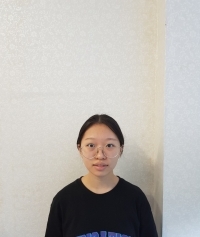2019 Japanese Products Boycott is the reflex action of South Korea against the economic sanction of Japan's Prime Minister Shinzo Abe, exposing the blatant complaint about the Korean judgment on the compensation of a compulsory manpower draft. Since 1965, there are seven Japanese products boycott recorded. These happened in 1974, 1996, 2001, 2005, 2008, and 2013. This time is the eighth. However, the latest boycott failed, so the key is what will happen to the boycott. Supporters of this movement are sharing the list of Japanese businesses and not purchasing their products. Especially, among Korean teenagers, Japanese Products Boycott is spreading rapidly through SNS.
 ▲ 2019 Japanese Products Boycott is the eighth movement in South Korea.
▲ 2019 Japanese Products Boycott is the eighth movement in South Korea.From 1910 to 1945, when Korea was a colony of Japan, a lot of women were taken as Japanese military sexual Slaves, and a lot of men were executed with a forced draft. A lot of people conjectured that the reason of this economic sanction is the ruling on the compensation for the Japanese forced labor case of the Supreme Court of South Korea, but Prime Minister Shinzo Abe claimed that this economic sanction is for international peace and maintenance of safety. Prime Minister Shinzo Abe restricted the exportation of key materials for semiconductor and display manufacturing including fluorinated polyimides and etching gas, and he also announced the removal of South Korea from the list of white countries. From this point of view, a lot of Koreans started to boycott Japanese products, and Korean students are also participating now in this movement.
 ▲ The contents of the economic sanction of Japan`s Prime Minister Shinzo Abe.
▲ The contents of the economic sanction of Japan`s Prime Minister Shinzo Abe.Korean teenagers are sharing the list of Japanese businesses which they must not use through SNS such as Facebook, Twitter, Instagram, Youtube, and many others. They constantly revise the list because the list includes some Korean or other countries' businesses. Also, South Korean students started to recommend using stationery made in South Korea instead of the stationery made in Japan. Plenty of Korean students have used Japanese stationary businesses such as Zebra, Mitsubishi pencil, Pentel, and Pilot, but now, they start to use Korean stationery businesses such as Dong-A, Monami and many more. As a result, Monami said sales of stationery at online malls rose by 553.7 percent compared to the same day of the previous week. In addition, the number of online mall subscriptions rose by 57.6 percent, and the number of users increased by 86.8 percent for mobile and 54.1 percent for PCs.
 ▲ Korean teenagers are sharing the list of Japanese businesses and acceptable alternate products in South Korea.
▲ Korean teenagers are sharing the list of Japanese businesses and acceptable alternate products in South Korea.In the 1920s, during the Japanese colonial era, there was a movement called Local Products Encourage Movement. Many Korean students learned from this movement through learning Korean history. As teenagers participate in this boycott, this movement is looking forward to lasting longer.
July 26th, 2019
by Lee Ji Eun
다른 곳에 퍼가실 때는 아래 고유 링크 주소를 출처로 사용해주세요.


울산서여자중학교 3학년 이지은입니다.